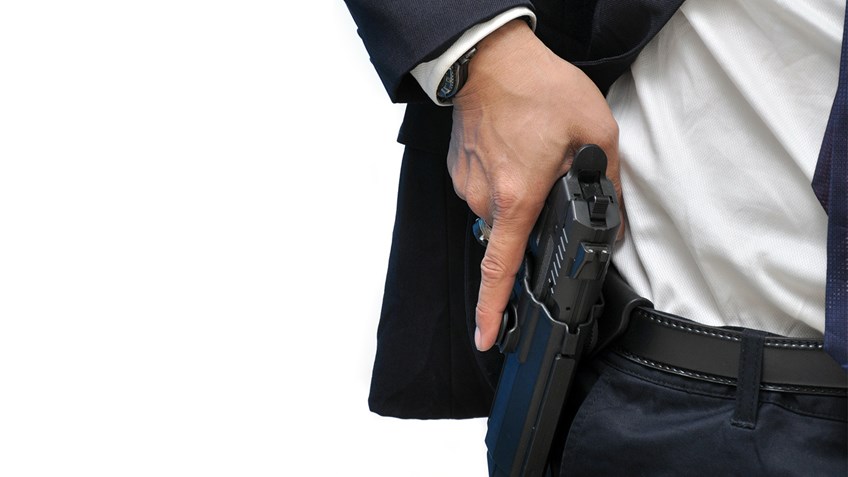Choosing the right gun for your needs can be a challenging decision, given the wide array of firearms available on the market. Whether you’re a first-time buyer or a seasoned shooter, selecting a gun that fits your specific requirements is crucial for safety, efficiency, and enjoyment. Here our aim to provide you with comprehensive guidance to make an informed decision when selecting a firearm.

1. Understand Your Purpose
The first step in choosing the right gun is to clearly define its intended use. Different guns serve different purposes, and what works for one scenario might not be ideal for another. The main categories include:
- Self-defense: Compactness and reliability are crucial. Handguns, like the Canik Mete SFX, are typically preferred for their ease of use and concealability.
- Hunting: Depending on the game, you might need a shotgun, rifle, or even a specific caliber. Larger animals require more powerful calibers, while shotguns are often used for birds.
- Target Shooting/Sports: Precision and comfort are key. Target rifles and pistols are designed for accuracy and ease of use over long periods.
- Collecting: Some buyers are interested in historical significance, rarity, or aesthetic value rather than functionality.
2. Do Your Research
Once you know your purpose, it’s essential to do thorough research. This includes understanding different types of guns, their mechanisms, calibers, and brands. Familiarize yourself with:
- Handguns: Revolvers and semi-automatic pistols.
- Rifles: Bolt-action, lever-action, semi-automatic, and others.
- Shotguns: Pump action, semi-automatic, break action, etc.
- Calibers and Ammunition: Based on your intended use, research the appropriate caliber and the availability of ammunition.
3. Consider Ergonomics and Fit
A gun should feel comfortable in your hands. A good fit enhances accuracy, safety, and confidence. When handling a firearm, consider:
- Grip: Is it comfortable and secure in your hand?
- Weight and Size: Can you hold it steadily for an extended period? Is it too heavy or too light?
- Balance: Does the firearm feel well-balanced when you hold it?
4. Reliability and Maintenance
A reliable gun is a safe gun. Research the reliability of different models and brands. Also, consider the maintenance required:
- Cleaning and Upkeep: Some guns require more maintenance than others. Make sure you’re willing and able to perform these tasks.
- Durability: Look for reviews and testimonials regarding the gun’s durability under various conditions.
5. Budget Considerations
Your budget plays a significant role in your decision. However, don’t compromise quality for cost, especially for self-defense weapons. Consider:
- Initial Cost: The purchase price of the firearm.
- Ongoing Costs: Ammunition, accessories, maintenance, and training expenses.
- Resale Value: Some guns retain their value better than others.
6. Legal Compliance and Background Checks
Understand the legal requirements in your area. Gun laws vary significantly and can include:
- Background Checks: Most places require background checks for gun purchases.
- Permits and Licensing: Some areas require specific permits for owning, carrying, or concealing a firearm.
- Restrictions: Certain types of firearms or features might be restricted in your area.
7. Training and Safety
Regardless of your experience level, proper training is vital. Consider taking courses in:
- Gun Safety: Learn the fundamental rules of safe gun handling.
- Shooting Skills: Develop accuracy and proficiency.
- Maintenance: Understand how to care for your firearm.
8. Test Before You Buy
If possible, test different guns before making a purchase. Many shooting ranges offer rental options. This allows you to:
- Feel the Gun: Understand how it feels to shoot the gun.
- Compare Models: Directly compare different models for comfort, accuracy, and ease of use.
9. Consider Future Needs
Think about how your needs might evolve. If you plan to get more involved in a specific shooting sport, consider a gun that can grow with you. Modular firearms that allow for upgrades and customization can be a good investment.
10. Seek Expert Advice
Lastly, don’t hesitate to seek advice from experienced shooters or gun store professionals. They can provide valuable insights based on your specific requirements and preferences.
Conclusion:
Choosing the right gun is a personal decision that should be made carefully and thoughtfully. By considering your purpose, doing thorough research, testing different options, and seeking expert advice, you can select a firearm that meets your needs and provides years of reliable service. Always prioritize safety and legal compliance in your decision-making process. Remember, a well-chosen gun not only serves its intended purpose but also enhances the overall shooting experience.